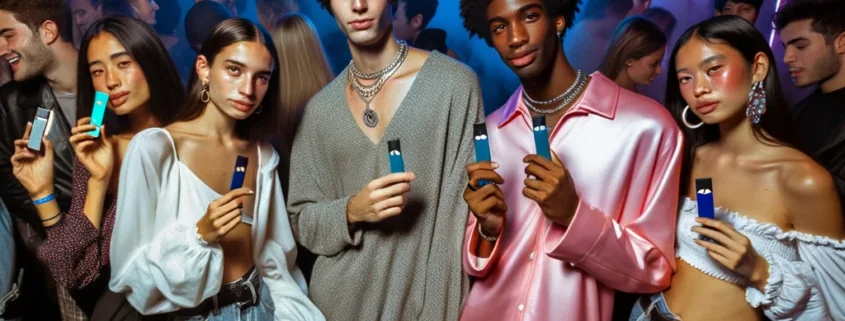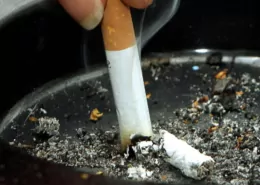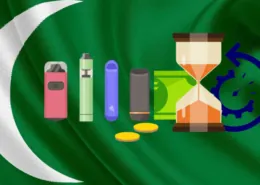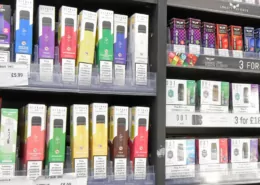Federal Survey Reveals Decline in Youth Vaping
The latest results from the National Youth Tobacco Survey, conducted by the Food and Drug Administration (FDA) and the Centers for Disease Control and Prevention (CDC), show a significant decline in youth e-cigarette use. Nearly 6 percent of U.S. middle and high school students reported using e-cigarettes this year, compared to 7.7 percent last year, marking a 70 percent decrease from the peak in 2019.
Despite the overall decline, the vast majority of youth vapers still gravitate towards flavored products, with fruit being the most common, followed by candy and mint. The survey also reveals that disposable e-cigarettes are the most popular products among young people.
The decrease in youth vaping was largely driven by a reduction in use among high school students, with 1.21 million reporting e-cigarette use in the past 30 days, compared to 1.56 million in 2023. However, among middle school students, there was no statistically significant change in e-cigarette use within the past year, highlighting the need for targeted interventions.
Federal health officials attribute the drop in youth vaping to ramped-up enforcement efforts, including fines against e-cigarette manufacturers and retailers for selling unauthorized vapes and seizing illegal products from overseas. Experts also point to new evidence about the health risks of e-cigarettes and educational campaigns at various levels as contributing factors.
While youth e-cigarette use has declined, nicotine pouches like Zyn have become increasingly popular, championed by social media influencers and conservative figures. Despite increased sales, usage levels among middle and high school students remained flat over the last year. However, experts worry that nicotine pouch usage may rise among youth, given the cultural buzz around Zyn and Philip Morris’s plans to build a factory in Colorado to meet new demand.
The FDA faces increasing pressure to finish reviewing applications from companies seeking to market e-cigarette products. The agency’s recent approval of the first menthol-flavored e-cigarettes drew criticism from some public health advocates. A major test of the agency’s power to regulate e-cigarettes is playing out in the courts, with the Supreme Court set to review the FDA’s refusal to approve some flavored vapes in the coming term.
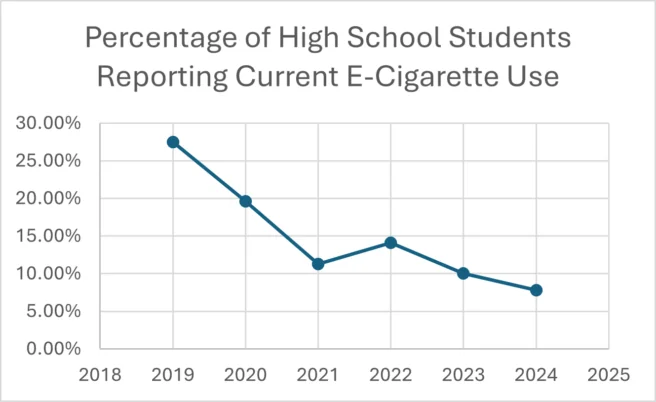
| NYTS Survey (Year) | Percentage of High School Students Reporting Current E-Cigarette Use | Estimated Weighted Number of High School Students Reporting Current E-Cigarette Use (Million) |
|---|---|---|
| 2024 | 7.8% | 1.21 |
| 2023 | 10.0% | 1.56 |
| 2022 | 14.1% | 2.14 |
| 2021 | 11.3% | 1.72 |
| 2020 | 19.6% | 3.02 |
| 2019 | 27.5% | 4.11 |
While experts lauded the decline in youth e-cigarette use as a sign of progress for public health, they cautioned that the survey does not include results across broader age groups. The popularity of disposable e-cigarettes among young people also remains a concern, with researchers estimating that more than $1.6 billion worth of illegal disposable vapes were sold in the United States last year.
As the tobacco landscape continues to evolve, federal officials and public health advocates stress the importance of ongoing efforts to curb youth vaping and address the challenges posed by new products like nicotine pouches and illegal disposable vapes.
Survey link: Results from the Annual National Youth Tobacco Survey
- Russia’s Vape Market: Inside the Battle for Control - August 8, 2025
- Brazil: Paraná Bill to Add Vaping to “No Smoking” Signs - August 8, 2025
- Celebrate with EightVape: 10 Lucky Winners Get Free Orders or $100 Gift Cards - August 8, 2025

